第49章 "FUROR CONSULARIS"(2)
Such was the military epilogue to the ill-judged adventure of Fangalii;it was difficult for failure to be more complete.But the other consequences were of a darker colour and brought the whites immediately face to face in a spirit of ill-favoured animosity.Knappe was mourning the defeat and death of his country-folk,he was standing aghast over the ruin of his own career,when Mullan boarded him.The successor of Leary served himself,in that bitter moment,heir to Leary's part.And in Mullan,Knappe saw more even than the successor of Leary,-he saw in him the representative of Klein.Klein had hailed the praam from the rifle-pits;he had there uttered ill-chosen words,unhappily prophetic;it is even likely that he was present at the time of the first fire.To accuse him of the design and conduct of the whole attack was but a step forward;his own vapouring served to corroborate the accusation;and it was not long before the German consulate was in possession of sworn native testimony in support.The worth of native testimony is small,the worth of white testimony not overwhelming;and I am in the painful position of not being able to subscribe either to Klein's own account of the affair or to that of his accusers.Klein was extremely flurried;his interest as a reporter must have tempted him at first to make the most of his share in the exploit,the immediate peril in which he soon found himself to stand must have at least suggested to him the idea of minimising it;one way and another,he is not a good witness.As for the natives,they were no doubt cross-examined in that hall of terror,the German consulate,where they might be trusted to lie like schoolboys,or (if the reader prefer it)like Samoans.By outside white testimony,it remains established for me that Klein returned to Apia either before or immediately after the first shots.That he ever sought or was ever allowed a share in the command may be denied peremptorily;but it is more than likely that he expressed himself in an excited manner and with a highly inflammatory effect upon his hearers.He was,at least,severely punished.The Germans,enraged by his provocative behaviour and what they thought to be his German birth,demanded him to be tried before court-martial;he had to skulk inside the sentries of the American consulate,to be smuggled on board a war-ship,and to be carried almost by stealth out of the island;and what with the agitations of his mind,and the results of a marsh fever contracted in the lines of Mataafa,reached Honolulu a very proper object of commiseration.Nor was Klein the only accused:de Coetlogon was himself involved.As the boats passed Matautu,Knappe declares a signal was made from the British consulate.Perhaps we should rather read "from its neighbourhood";since,in the general warding of the coast,the point of Matautu could scarce have been neglected.On the other hand,there is no doubt that the Samoans,in the anxiety of that night of watching and fighting,crowded to the friendly consul for advice.Late in the night,the wounded Siteoni,lying on the colonel's verandah,one corner of which had been blinded down that he might sleep,heard the coming and going of bare feet and the voices of eager consultation.And long after,a man who had been discharged from the colonel's employment took upon himself to swear an affidavit as to the nature of the advice then given,and to carry the document to the German consul.It was an act of private revenge;it fell long out of date in the good days of Dr.Stuebel,and had no result but to discredit the gentleman who volunteered it.Colonel de Coetlogon had his faults,but they did not touch his honour;his bare word would always outweigh a waggon-load of such denunciations;and he declares his behaviour on that night to have been blameless.The question was besides inquired into on the spot by Sir John Thurston,and the colonel honourably acquitted.But during the weeks that were now to follow,Knappe believed the contrary;he believed not only that Moors and others had supplied ammunition and Klein commanded in the field,but that de Coetlogon had made the signal of attack;that though his blue-jackets had bled and fallen against the arms of Samoans,these were supplied,inspired,and marshalled by Americans and English.
The legend was the more easily believed because it embraced and was founded upon so much truth.Germans lay dead,the German wounded groaned in their cots;and the cartridges by which they fell had been sold by an American and brought into the country in a British bottom.Had the transaction been entirely mercenary,it would already have been hard to swallow;but it was notoriously not so.
British and Americans were notoriously the partisans of Mataafa.
They rejoiced in the result of Fangalii,and so far from seeking to conceal their rejoicing,paraded and displayed it.Calumny ran high.Before the dead were buried,while the wounded yet lay in pain and fever,cowardly accusations of cowardice were levelled at the German blue-jackets.It was said they had broken and run before their enemies,and that they had huddled helpless like sheep in the plantation house.Small wonder if they had;small wonder had they been utterly destroyed.But the fact was heroically otherwise;and these dastard calumnies cut to the blood.They are not forgotten;perhaps they will never be forgiven.
In the meanwhile,events were pressing towards a still more trenchant opposition.On the 20th,the three consuls met and parted without agreement,Knappe announcing that he had lost men and must take the matter in his own hands to avenge their death.